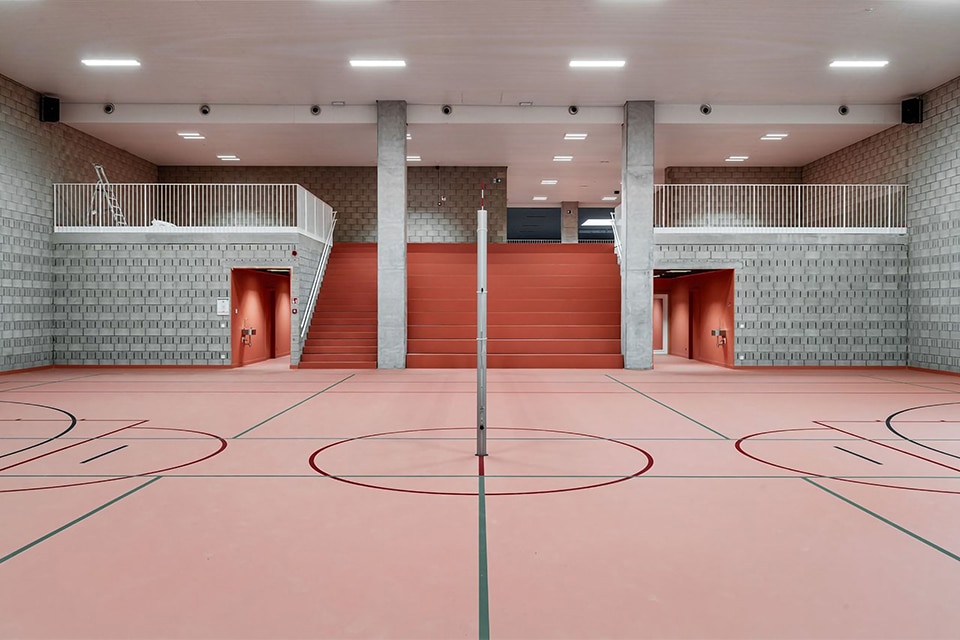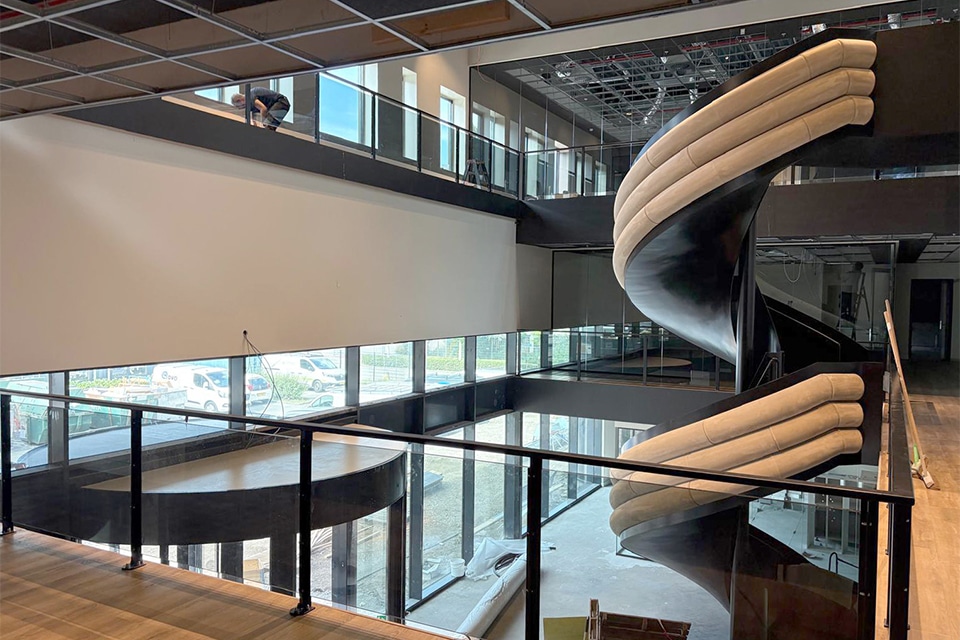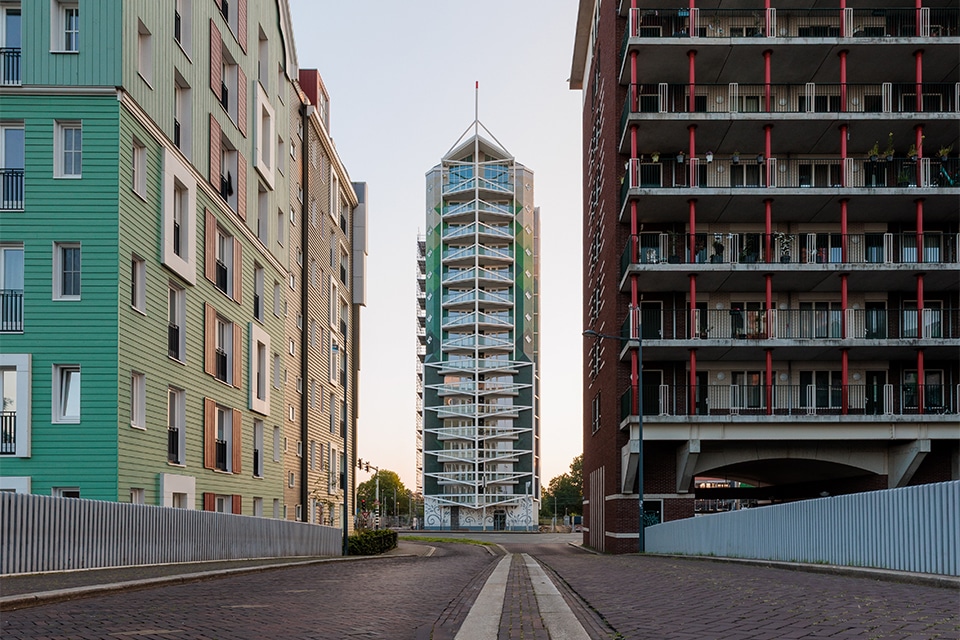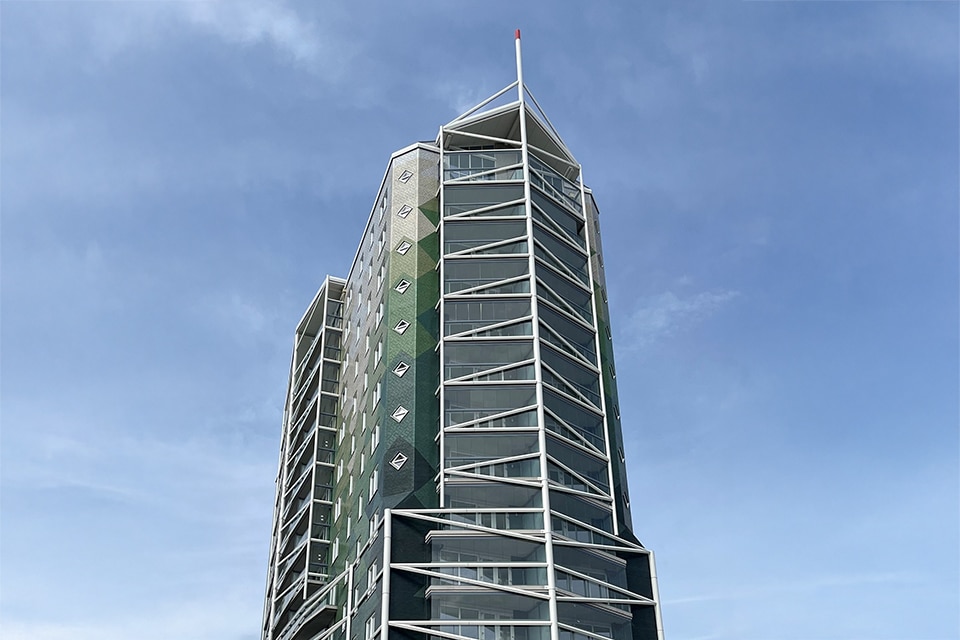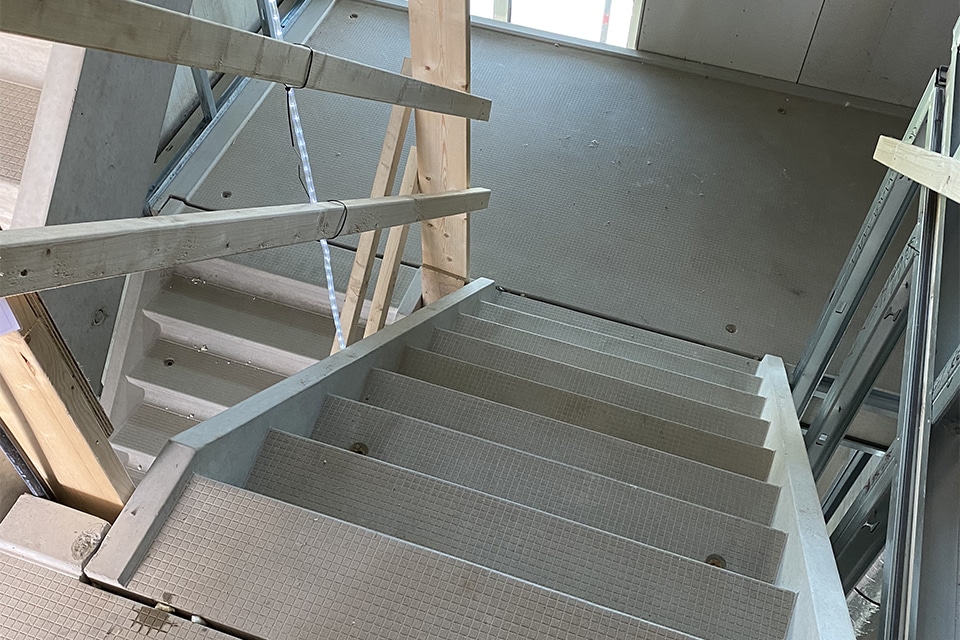
Precast concrete solutions for House of the Artists
Slope staircase as eye-catcher in Leidsche Rijn
On the east side of Leidsche Rijn Center, a striking residential building will be erected: House of the Artists (HOTA). With its triangular shape, inner garden and mix of about 240 dwellings for students and starters, the building will have a prominent place on the culture strip. A familiar assignment for Steenhuis Beton BV, with a special element: a wide ramp staircase for bicycles in the basement.
The project consists of two building sections that include studios, studio apartments and two-bedroom apartments. There is a stairwell in each wing. "That was kind of a fun job for us," says Aeilco Holtkamp, sales manager of Steenhuis Beton. "The stairwells in HOTA were made based on our standard molds."
These standard solutions are characteristic of Steenhuis Beton, which has specialized in prefabricated stairs and landings since 1913. The company has hundreds of molds that can be combined. "Thanks to our standard molds, we can offer all kinds of possibilities. For a contractor, standardization is beneficial because it allows us to offer it at a more interesting price."
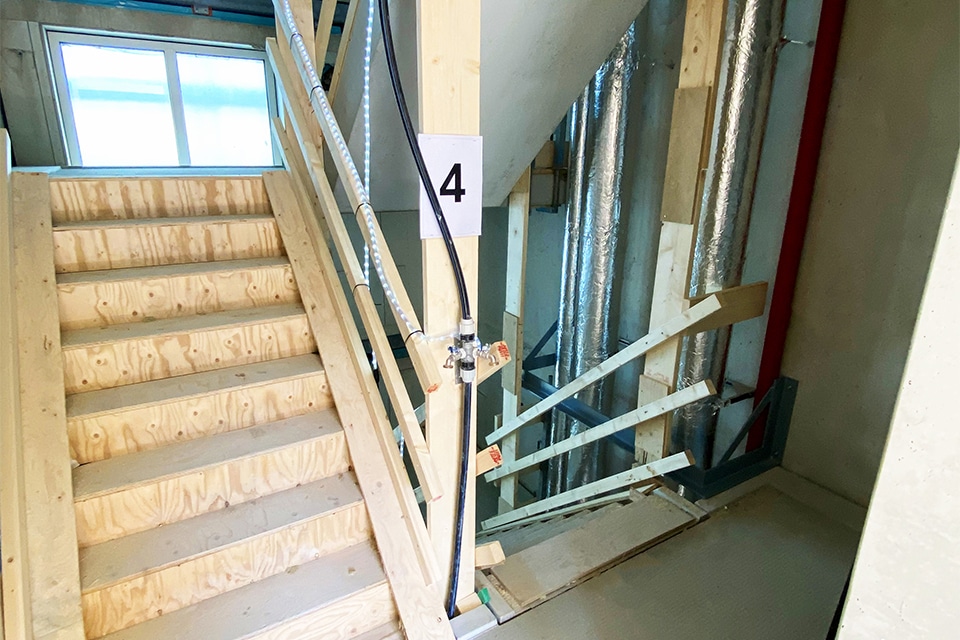
Bespoke ramp stairs
In the building's basement, there's a striking feature: a wide ramp staircase for cyclists. "This one is almost 2.30 wide, so that's pretty striking," Holtkamp says. The stairs will be equipped with an electric guidance system. "We made a staircase with a floor in it. In it they later put the system that guides the bikes up. Down you have a brush sitting, which slows the bike down a bit."
Because of the width of the stairs and the space for the guidance system, Steenhuis Beton developed a separate mold for this purpose. The company more often combines fixed molds with targeted modifications for special situations. "For every situation with wide stairs, it's just different, depending on the space," says Steenhuis.
Efficient building, future-oriented thinking
The project fit perfectly into Steenhuis Concrete's working methods. "This is basically the 'normal work' for us. Except for the ramp staircase, which was a special element though." Still, Holtkamp is seeing more and more of these applications as well. "We're seeing it more and more in basements. If you can't make a very faint staircase, they are increasingly making a system like this."
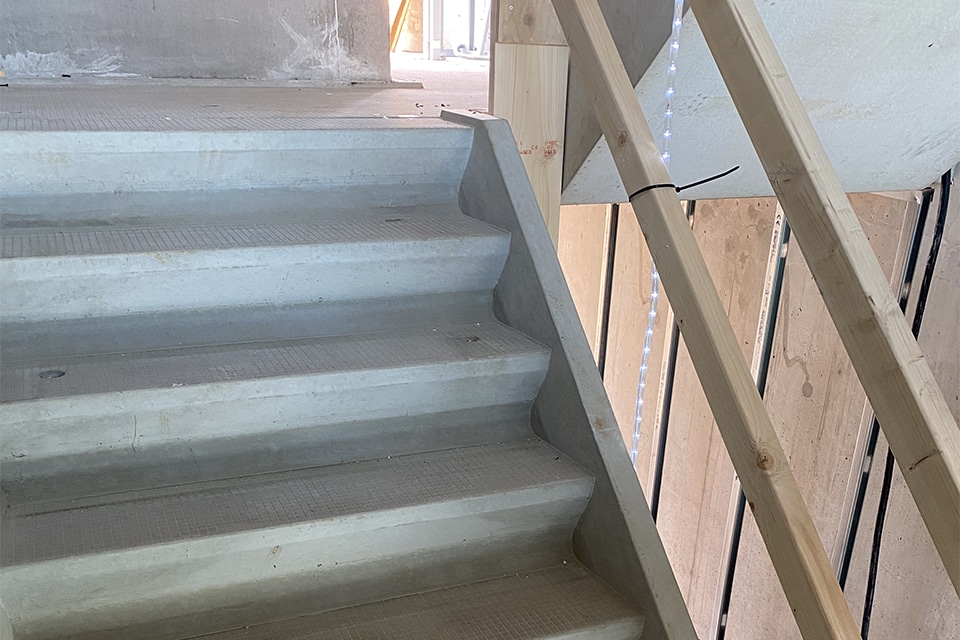
With precast solutions like these, Steenhuis Beton contributes to smart and affordable housing construction. Steenhuis Beton is also thinking about the future and is working hard on sustainable concrete. It is currently running a pilot project with the binding agent INVIE, which BTE has developed in its own laboratory as a substitute for cement. This can save 70% of CO2. By the end of this year, the results will be there so that the first sustainable stairs can be delivered at project level in 2026.
